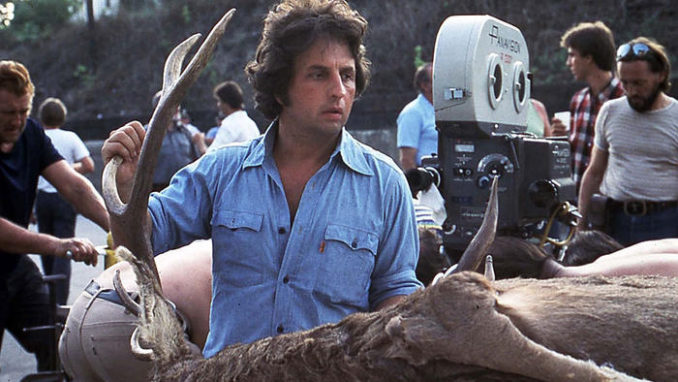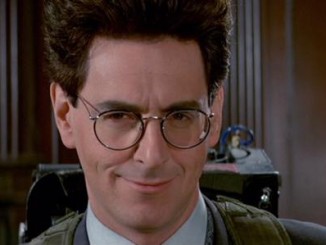 While he directed one of the best films of all times, Michael Cimino’s legacy will be that he directed the one film that for a generation has come to symbolize a Hollywood bomb. Cimino was found dead in his home on Saturday by police, called by friends worried that they hadn’t heard from Cimino. No cause of death is at yet known. Sources place his age at 77, although Cimino had claimed to be younger.
While he directed one of the best films of all times, Michael Cimino’s legacy will be that he directed the one film that for a generation has come to symbolize a Hollywood bomb. Cimino was found dead in his home on Saturday by police, called by friends worried that they hadn’t heard from Cimino. No cause of death is at yet known. Sources place his age at 77, although Cimino had claimed to be younger.
Cimino got his start directing in Madison Avenue, working on commercials for products such as L’eggs, United Airlines, Pepsi and others in the late 1960s. He moved to Hollywood in 1971 and started work as a screenwriter. He co-wrote the 1972 film, Silent Running, with a young Steven Bochco and, with John Milnus, wrote the 1973 entry into the Dirty Harry franchise, Magnum Force.
 It was through that film’s star, Clint Eastwood, that Cimino got his chance to direct feature films. He personally chose Cimino to direct Thunderbolt and Lightfoot when Eastwood, the films producer and star, decided to pass on directing the movie himself. The film, about a pair of thieves robbing a Montana mining company, made a respectable profit and earned Jeff Bridges his second Oscar nomination for Best Supporting Actor. The film also established Cimino as a talent Hollywood wanted to work with. This led him to directing The Deer Hunter.
It was through that film’s star, Clint Eastwood, that Cimino got his chance to direct feature films. He personally chose Cimino to direct Thunderbolt and Lightfoot when Eastwood, the films producer and star, decided to pass on directing the movie himself. The film, about a pair of thieves robbing a Montana mining company, made a respectable profit and earned Jeff Bridges his second Oscar nomination for Best Supporting Actor. The film also established Cimino as a talent Hollywood wanted to work with. This led him to directing The Deer Hunter.
The film, centering on three Pennsylvania Vietnam War veterans adjusting to life back home after the war, was nominated for nine Oscars (including the Meryl Streep’s first nod) and won five, including two for Cimino, one for directing, the other a share of the Best Picture prize.
The success of The Deer Hunter allowed Cimino to get carte blanche on his next project. This proved to be a mistake as his next film would be Heaven’s Gate. The film, a western about a conflict between European immigrants and rich land owners in 1870’s Wyoming, is a legendary example if creative indulgence resulting in epic failure. It has become hard to separate the truth from the legend, but it seems clear that Cimino’s perfectionist ways were the reason the shooting went over schedule and his production budget ballooned up from $11 million to $44 million. The film was released for one week in 1980 and one week in 1981, earning only $3.5 million, becoming one of the biggest flops in Hollywood history.
Not only did the film become a final nail in New Hollywood and a punchline for comedians for decades after, it pretty much derailed Cimino’s career. He would only direct four more feature films in the next sixteen years, most notably The Year of the Dragon and a remake of Desperate Hours. His last full-length directorial effort was 1996’s Sunchaser. All were critical and box office failures.



